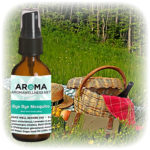Do you know…… According to WHO (World Health Organization), more than 6 million people in the United States suffer from various types of Dementia with over 47 million people living with dementia worldwide and there are nearly 10 million new cases every year. There is a lack of awareness and understanding of dementia in most countries, resulting in stigmatization, barriers to diagnosis and care.
Dementia is a syndrome, usually of a chronic or progressive nature. Demen tia occurs when nerve cells in the brain become damaged causing a variety of brain illnesses that affect memory, thinking, behavior, orientation, comprehension, language, judgement, learning capacity, and ability to perform everyday activities. Consequently, there are various types of dementia, which are generally categorized by two factors: the section of the brain damaged, and the condition. Dementia is overwhelming not only for the people who have it, but also for their caregivers and takes devastating emotional, financial, and physical toll on families. Based on the high number of individuals affected, dementia is one of the leading cause of dependency and mental impairment among the elderly population. The signs and symptoms linked to dementia can be understood in three stages:
tia occurs when nerve cells in the brain become damaged causing a variety of brain illnesses that affect memory, thinking, behavior, orientation, comprehension, language, judgement, learning capacity, and ability to perform everyday activities. Consequently, there are various types of dementia, which are generally categorized by two factors: the section of the brain damaged, and the condition. Dementia is overwhelming not only for the people who have it, but also for their caregivers and takes devastating emotional, financial, and physical toll on families. Based on the high number of individuals affected, dementia is one of the leading cause of dependency and mental impairment among the elderly population. The signs and symptoms linked to dementia can be understood in three stages:
Early stage: this stage is often overlooked, because the onset is gradual. Common symptoms include:
forgetfulness
losing track of the time
becoming lost in familiar places.
Middle stage: by this stage, the signs and symptoms become clearer and more restricting. These include:
becoming forgetful of recent events and people’s names
becoming lost at home, wandering
difficulty with communication and repeated questioning
needing help with personal care
Late stage: this stage of dementia is one of near total dependence and inactivity. Symptoms include:
becoming unaware of the time and place
having difficulty recognizing relatives and friends
having an increasing need for assisted self-care
having difficulty walking
AARP(American Association of Retired Persons) has long been committed to raising awareness of dementia related illness and educating people age 50 and older on how to maintain brain health. There is no treatment currently available to cure dementia or to alter its progressive course. Numerous new treatments are being investigated in various stages of clinical trials. However, much can be offered to support and improve the lives of people with dementia and their care givers and families. The principal goals for dementia care are:
- early diagnosis in order to promote early and optimal management
- optimizing physical health, cognition, activity and well-being
- detecting and treating challenging behavioral and psychological symptoms
- providing information and long-term support to care givers and the family
Researchers have shown that aromatherapy may be effective in helping people with dementia to relax, to improve symptoms of depression, anxiety, insomnia, and cognition in people with Alzheimer’s disease. Aromatherapy is the use of natural aromatic Essential Oils extracted from plants and plant parts, that have been used for centuries to ease various health symptoms, for skin care and relaxation. Here are some oils that have been shown to be effective in treating and controlling different symptoms of dementia when used with proper dilution:
- Lavender: is calming, help in balancing emotions, anxiety, reduce agitation, insomnia, may reduce occurrences of aggressive behavior in dementia. Can be used in massage oil or sprayed on linens or diffused or can be inhaled directly. It is a good oil for care givers too. Geranium and Mandarin oils are good for this too.
- Peppermint: is an energizer, stimulate mind and calm nerves simultaneously. Best used in the morning, can be inhaled directly or diffused or applied topically.
- Rosemary: like Peppermint, it’s uplifting, stimulate mind and body, mood, depression. It can be directly inhaled or diffused or used as a spray.
- Bergamot: is mood elevating oil and is used to relieve anxiety, agitation, stress. It can be directly inhaled or diffused or used as a spray. It is a good oil for care givers too.
- Lemon Balm: may improve cognition and mood in the treatment of Alzheimer’s disease. It’s calming and relaxing, improve memory, help with indigestion. It can be used in bath, inhaled directly, diffused, sprayed or applied topically.
- Ylang Ylang: can ease depression, restlessness, lack of sleep. Can be inhaled directly or diffused or sprayed, in bath. It is a good oil for care givers too.
- Ginger: good for digestion issues, loss of appetite or inflammation. Can be inhaled directly, massage on abdomen mixed with proper carrier oil, diffused, placed on a compress.
Om Healing………..Uma
(Founder of AromaWellness)
visit aromawellness.net, to order
Call 414-793-8645, to schedule your consultation appointment
Journal of Public Health, Volume 37, Issue 4, 1 December 2015, Pages 597–604,https://doi.org/10.1093/pubmed/fdu080
Jimbo D, Kimura Y, Taniguchi M, Inoue M, Urakami K. Effect of aromatherapy on patients with Alzheimer’s disease. Psychogeriatrics. 2009 Dec;9(4):173-9. PMID: 20377818





Recent Comments